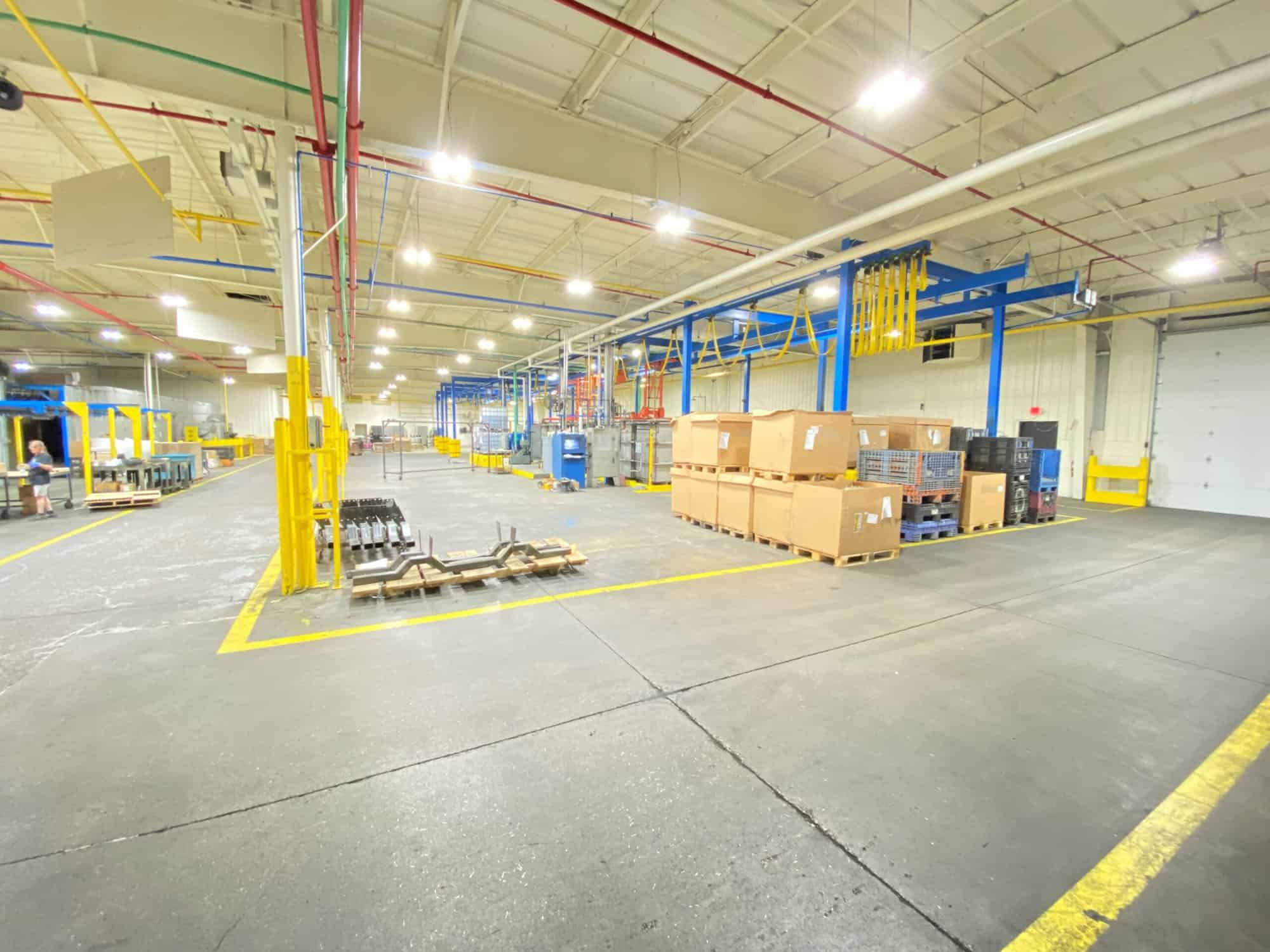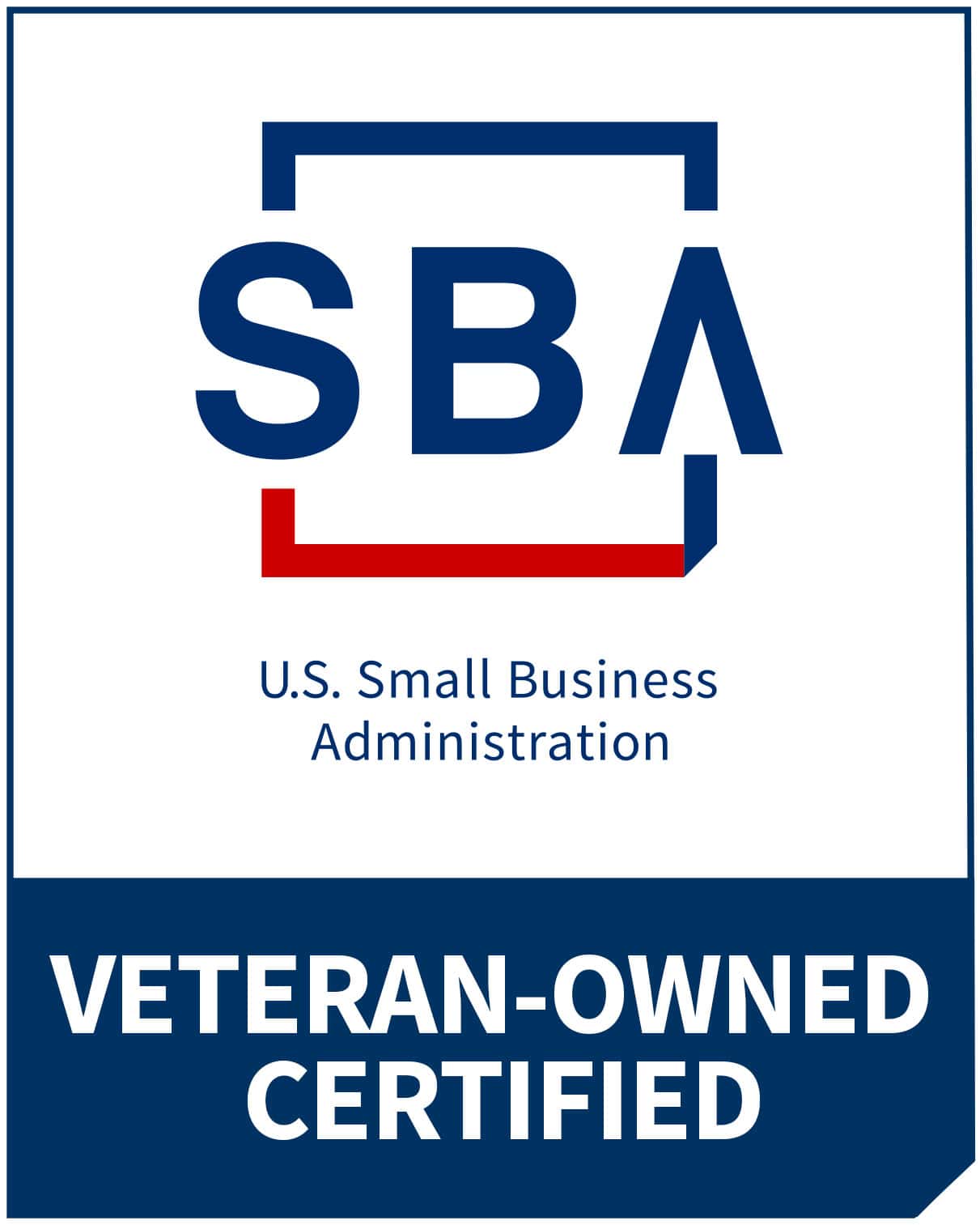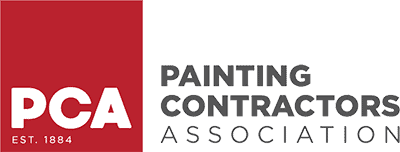Imagine walking into a facility where the paint is peeling off the walls, machinery is rusting, and surfaces are covered in grime. Not only does this create a negative impression, but it also poses safety hazards and accelerates wear and tear.
For businesses in Muskegon, MI, maintaining industrial spaces is not just about aesthetics. It’s also about protecting investments and ensuring a safe working environment. This is where industrial painting comes into play. Many business owners often ask, “What is industrial painting and why is it important?”
This blog will cover the concept, address common concerns, and explain how industrial painting can benefit local businesses. Whether you’re dealing with frequent maintenance issues or simply want to improve the look and longevity of your facilities, understanding industrial painting is important.
Key Takeaways:
- Learn what is industrial painting, including its specialized techniques and materials designed to withstand harsh conditions.
- Discover the advantages of industrial painting, such as cost savings, improved aesthetics, compliance with safety standards, and environmental protection.
- Explore the tailored solutions industrial painting offers, such as anti-slip coatings, chemical-resistant paints, and heat-resistant finishes to meet specific industry needs.

What is Industrial Painting?
Industrial painting is a specialized field that goes beyond the basic application of paint to surfaces. It involves the use of advanced techniques and high-performance coatings designed to withstand harsh environments and demanding conditions.
Unlike residential or commercial painting, industrial painting focuses on surfaces exposed to extreme temperatures, chemicals, and heavy wear. This type of painting is commonly used in factories, warehouses, bridges, and other infrastructure projects.
Industrial painting requires a deep understanding of the substrates being coated, as well as the environmental conditions they will face. This includes everything from selecting the right type of paint to ensuring proper surface preparation and application methods. By using specialized coatings, industrial painting provides a protective barrier that helps prevent corrosion, reduces maintenance costs, and extends the lifespan of equipment and structures.
Importance of Industrial Painting for Businesses
Industrial painting plays a vital role in the upkeep and protection of facilities. One of the primary benefits is enhancing the durability and longevity of surfaces. For businesses dealing with machinery, metal structures, and other industrial equipment, a proper coat of industrial paint can protect against rust and corrosion, significantly extending the life of these investments.
Industrial painting can improve a facility’s overall aesthetics, which is essential for maintaining a professional image. A well-maintained facility reflects positively on a business, instilling confidence in clients and partners. Beyond looks, industrial painting also ensures that businesses comply with local safety regulations and industry standards, which often require specific coatings for certain environments.
Common Techniques and Materials Used in Industrial Painting
When it comes to industrial painting, the techniques and materials used are crucial for achieving the desired results. Various methods are employed depending on the specific requirements of the project and the type of surfaces being painted.
Spray Painting
Spray painting is one of the most common techniques used in industrial painting due to its efficiency and ability to cover large surfaces quickly. This method involves using a spray gun to apply paint in a fine mist, ensuring an even and smooth finish. Spray painting is particularly effective for complex structures and hard-to-reach areas where traditional painting methods might struggle.
It also allows for the application of thicker coatings, providing better protection against harsh environmental conditions. Spray painting can significantly reduce downtime during maintenance, allowing for a swift return to normal operations.
Brush and Roller Application
While spray painting is highly efficient, brush and roller application remain essential techniques in industrial painting. These methods are ideal for smaller areas or when precision is needed, such as around edges, corners, and detailed work. Brushes and rollers provide greater control over the application, ensuring that the paint is evenly spread and adheres well to the surface.
This technique is also beneficial for applying thicker coatings where a more substantial layer is required for added protection. Businesses can rely on brush and roller application for meticulous work that enhances both the durability and aesthetics of their facilities.
Epoxy Coatings
Epoxy coatings are a popular choice in industrial painting due to their superior adhesion, durability, and chemical resistance. These coatings are ideal for environments where surfaces are exposed to heavy wear, chemicals, and moisture. Epoxy creates a hard, protective barrier that can withstand impact and abrasion, making it perfect for floors, machinery, and other high-traffic areas. Using epoxy coatings means investing in long-lasting protection that reduces maintenance costs and extends the lifespan of their industrial assets.
Polyurethane Coatings
Polyurethane coatings are known for their flexibility and resistance to UV light, making them suitable for both interior and exterior applications. These coatings provide a durable finish that can handle temperature fluctuations and exposure to sunlight without cracking or fading.
Polyurethane is also resistant to chemicals and abrasions, offering robust protection for industrial surfaces. Businesses in Muskegon, MI can benefit from polyurethane coatings by enhancing the longevity and appearance of their outdoor equipment and structures, ensuring they remain in optimal condition despite harsh weather conditions.
Zinc-Rich Primers
Zinc-rich primers are essential for providing a protective layer against corrosion, especially on steel structures. These primers contain a high percentage of zinc dust, which acts as a sacrificial anode to prevent rust from forming on the underlying metal. By using zinc-rich primers, businesses can significantly extend the life of their steel assets, reducing the need for frequent repairs and replacements. Applying zinc-rich primers for industrial facilities ensures that their structures remain strong and resilient, even in environments prone to moisture and corrosive elements.
Benefits of Industrial Painting for Local Industries
Industrial painting offers numerous benefits to businesses in Muskegon, MI, significantly impacting their operations and bottom line.
- Cost Savings
Industrial painting helps prevent corrosion and wear on machinery, equipment, and structures. By applying protective coatings, businesses can reduce the frequency of maintenance and replacements. This extends the lifespan of their assets, leading to significant cost savings over time. - Compliance with Safety Standards and Regulations
Many industries have strict regulations regarding the types of coatings used in various environments. Industrial painting ensures that facilities meet these requirements, helping businesses avoid fines and legal issues. It also promotes a safer working environment by using coatings that reduce risks such as slips, corrosion, and chemical exposure. - Improved Aesthetics
A well-maintained facility with fresh, high-quality paint creates a positive impression. It reflects professionalism and attention to detail, which can enhance a business’s reputation. This improved image can attract clients and partners, potentially leading to more business opportunities and a stronger market presence. - Environmental Protection
Industrial painting can help businesses minimize their environmental footprint by using eco-friendly coatings and materials. This aligns with sustainability goals and can attract eco-conscious customers. Where there is a growing focus on environmental responsibility, this can enhance a company’s corporate responsibility profile. - Customization Options
Industrial painting offers tailored solutions to meet the specific needs of different industries. For example, anti-slip coatings can enhance safety in high-traffic areas, chemical-resistant paints can protect surfaces in laboratories, and heat-resistant finishes can improve the durability of manufacturing equipment. These customized coatings enhance the functionality and performance of facilities.
Final Thoughts
What is industrial painting? Industrial painting is vital to maintaining and protecting industrial facilities. By understanding what industrial painting entails, businesses can make informed decisions that enhance their assets’ durability, safety, and aesthetics. The right combination of techniques and materials and choosing a reputable contractor ensure that industrial painting projects deliver long-lasting benefits.
At Dave Cole Decorators, Inc., we are expert painters dedicated to providing top-quality industrial painting services. Our industrial services in Grand Rapids, Lansing, MI and the surrounding areas include comprehensive solutions tailored to various industries’ unique needs. Whether you need protective coatings for machinery, anti-corrosion treatments for metal structures, or specialized finishes for specific environments, we have the expertise and experience to deliver exceptional results.
We understand the importance of minimizing downtime and disruptions to your operations. Our team works efficiently and adheres to strict safety protocols to ensure a seamless painting process. From thorough surface preparation to the application of high-performance coatings, we guarantee a durable and aesthetically pleasing finish.
Call us at 616-303-5911 for a FREE estimate and discover how we can help protect and beautify your industrial facilities!










